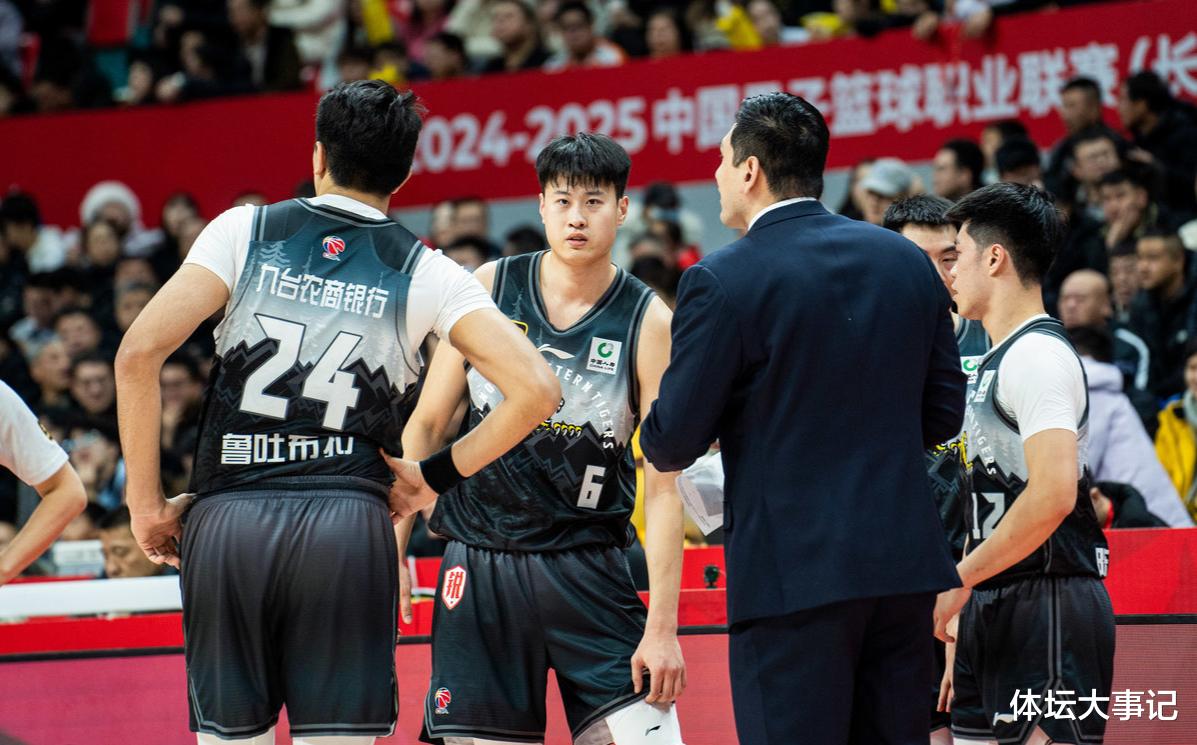On January 11th, the CBA regular season features four matchups: Shenzhen vs. Shandong, Sichuan vs. Ningbo, Tianjin vs. Jilin, and Zhejiang vs. Beijing. While there aren't many clashes between top teams, most of the matchups involve closely matched opponents, making the competition more intense than expected. Here's a brief pre-game analysis.

The game between Zhejiang and Beijing has a small gap in strength, with Zhejiang ranked 6th and Beijing 8th. Both teams face similar issues, mainly injuries to key players. Zhejiang is missing Wu Qian and Yu Jiahao, but fortunately, these are minor issues that won't keep them out for long. Wu Qian has been watching from the sidelines recently and seems in good spirits.

Beijing's Chen Yingjun is out due to an ankle sprain and won't be back for the second stage. Zeng Fanbo has a cold, similar to Zhou Qi's situation, and they're alternating absences.

Both teams have 19 wins, so even if they lose, they won't drop too far in the standings. Zhejiang has a slight home advantage, but it's uncertain if Yu Jiahao and Wu Qian will return, or even just one of them. Especially in the paint, if they lack height, they'll struggle against Zhou Qi, even if he's not at his peak.

However, Zhejiang's advantage lies in their perimeter shooting, with accurate guards like Gabe York and Lu Wenbo, who have strong three-point shooting capabilities. Beijing relies on Germain's individual ability, and if other positions can provide support, their chances of winning increase. Overall, this game is evenly matched, and it's unpredictable who will come out on top.

The game between Sichuan and Ningbo also has a small gap, as both teams were expected to be at the bottom of the standings. However, this year's foreign player policy has provided significant help, with local players playing a supporting role and the core tasks being handled by foreign players, which still brings combativeness. Their performance may not improve significantly, but the games will be more exciting, and strong teams won't dare to underestimate them.

Overall, Ningbo seems to have a better foundation than Sichuan, especially since Wang Junjie and other former Bayi players are still in their prime. Moreover, Ningbo has only been in the CBA for over three years and has already established a foundation, with room for further growth. Sichuan, on the other hand, hasn't made much progress since winning the championship in 2016.

The game between Tianjin and Jilin also has some highlights, as both teams' playoff hopes this season seem slim. Tianjin started well but fell apart in the second stage, making it difficult to enter the top 12 and even being surpassed by teams like Guangzhou and Ningbo.

Currently, Tianjin has only seven wins and ranks 18th, recently suffering a seven-game losing streak, which must be frustrating for Zhang Qingpeng. However, facing Jilin at home is a good opportunity to end the losing streak, as the opponent lacks players like Jones and has severely diminished fighting power. Jilin has ten wins, slightly ahead of the teams behind them, but this lead is likely to be gradually eroded.

In contrast, the matchup between Shenzhen and Shandong appears to have a larger gap, as Shenzhen is only ranked 14th while Shandong has entered the top four. However, the gap in strength between the two teams wasn't that big in the past, especially since Shenzhen has fallen from its peak but still has a solid foundation and has shown a clear rebound recently.

Shenzhen's biggest problem is their weak interior, which makes it difficult to resist the combination of Tao Hanlin and Chris. Relying on other positions for compensation isn't realistic. Zhou Peng has been in good form recently, and his partnership with Weems seems reminiscent of their time at Guangdong, but it's still challenging to quickly improve Shenzhen's results.

Additionally, Shandong's perimeter isn't weak, and they have ample personnel, with Gao Shiyan and foreign players taking turns attacking. Shenzhen's ace is He Xining, but others fall short. Therefore, even though they're playing at home, Shenzhen's chances of winning aren't high, while Shandong aims for a third straight win.